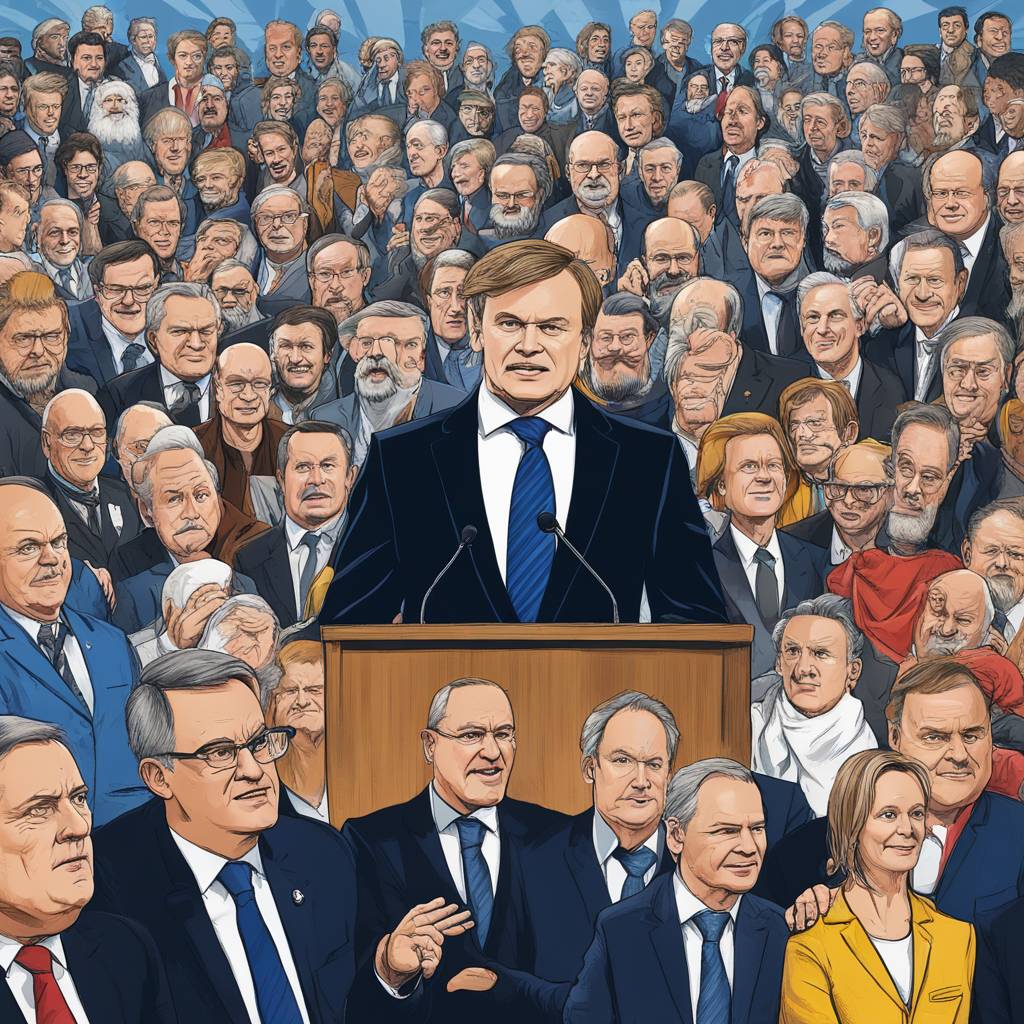Finland’s prime minister, Petteri Orpo, addressed the European Parliament and outlined his political priorities, emphasizing his government’s commitment to a strong European Union that takes care of common security and works for the economy. However, Orpo’s speech quickly turned into a debate over his alliance with the Finns Party, a populist, Eurosceptic party plagued by racism and anti-Semitism scandals. The coalition government also includes members from the Swedish People’s Party of Finland and Christian Democrats. Progressives view this as evidence of a growing connection between the traditional right and the extreme right in Europe, which threatens European integration.
Iratxe García Pérez, the leader of the Socialists and Democrats, criticized Orpo for his alliance with the far right, accusing him of endangering democracy and the European project. She called on Orpo and Manfred Weber to end their alliance with those who want to destroy Europe. Another point of contention was Orpo’s proposal for a rethink of the Green Deal after the upcoming European Parliament elections. Orpo urged for a shift away from detailed regulation towards fostering innovation, which led to criticism from members of the Greens who argued that public spending is necessary for deploying renewable energy.
Criticism of Orpo’s political alliances and economic reforms continued during the debate, echoing concerns from progressive MEPs about aligning with far-right parties and agendas. Nicola Procaccini of the ECR group praised Orpo for choosing to govern alongside the Finns Party, a notable member of their political family, and highlighted the importance of unity on the center-right in European politics. The ECR group is seen as more ideologically tolerable for the EPP than the Identity and Democracy group, which includes more extreme right-wing parties.
Orpo defended his coalition and political agenda, particularly on support for Ukraine, and pushed back against claims of far-right influence in his government. He emphasized his government’s commitment to the rule of law, democracy, equal gender rights, Ukraine, and the European Union. Orpo’s working arrangement with the Finns Party illustrates a growing trend of traditional conservative parties aligning with more right-wing populist groups, which has raised concerns among progressive forces in the European Parliament.
The debate highlighted the issue of political alliances and the blurred lines between the traditional right and the extreme right in European politics. Progressive MEPs expressed concerns about the implications of such alliances for European integration and democracy, while right-wing and hard-right lawmakers showed support for Orpo’s government. The outcome of the upcoming European Parliament elections will further shape the political landscape in Europe, with projected increases in seats for the ECR and ID groups potentially weakening the grand coalition between conservatives, socialists, and liberals.
Orpo’s speech to the European Parliament sparked a debate over his government’s coalition with the Finns Party and its implications for European politics. Progressive forces raised concerns about the growing connection between traditional conservatives and extreme right-wing parties, while right-wing lawmakers praised Orpo’s leadership and coalition choices. The outcome of the upcoming European Parliament elections will be crucial in shaping the future political landscape in Europe, with potential shifts in power dynamics among conservative, socialist, and liberal groups.













